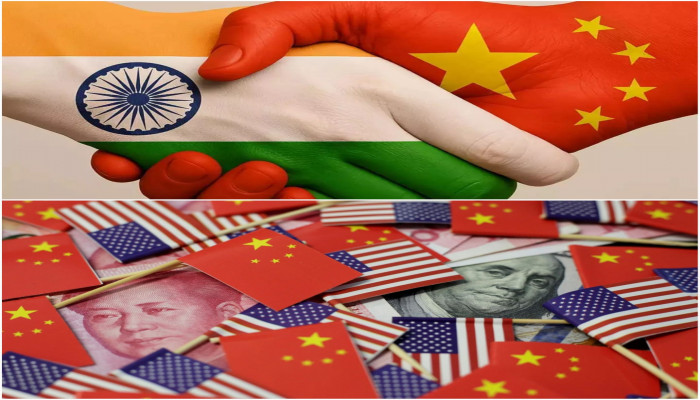Chinese Embassy urges India to oppose U.S. tariffs, calling it harmful to developing nations
- In Reports
- 03:00 PM, Apr 09, 2025
- Myind Staff
The Chinese Embassy in India has strongly criticised the United States’ latest tariff actions, urging the global community to unite against “unilateralism and protectionism.” China also appealed to India to join hands in opposing these U.S. tariffs, calling them an “abuse” that negatively impacts developing nations.
Sharing a message on the social media platform X, Yu Jing, the Chinese Embassy in India spokesperson, emphasised, “China-India economic and trade relationships are based on complementarity and mutual benefit. Facing the US abuse of tariffs, which deprives countries, especially Global South countries, of their right to development, the two largest developing countries should stand together to overcome the difficulties.”
The statement was made in reaction to US President Donald Trump’s move to slap an extra 50% tariff on Chinese imports, pushing the total tariffs imposed this year to 104%. This latest hike came after China returned with a 34% retaliatory tariff in response to earlier US duties. Trump has also cautioned that things could escalate further if China doesn't withdraw its countermeasures.
China portrayed the US tariffs as a blow to economic globalisation. Yu emphasised that “Trade and tariff wars have no winners. All countries should uphold the principles of extensive consultation, practice true multilateralism, and jointly oppose all forms of unilateralism and protectionism.”
Starting April 9, the United States has implemented new reciprocal tariffs, raising import duties on countries with which it runs a trade deficit. India now faces a 26% tariff, while China is dealing with a total tariff rate of 104%, resulting from multiple retaliatory moves between Beijing and Washington.
These tariff changes have reshaped global trade dynamics beyond just India and China. In response, China has held talks with Japan and South Korea to discuss the U.S. tariffs and consider possible joint reactions. Meanwhile, the European Union’s Trade Commissioner, Maros Sefcovic, visited China to push for a more substantial trade partnership. This visit signals a shift in Europe’s approach, moving away from its earlier stance of reducing dependence on China.
India's export-focused sectors, especially manufacturing, pharmaceuticals, and technology, could take a hit due to the upcoming tariff increases. According to a Reuters report on Wednesday, Trump is expected to roll out new tariffs targeting the pharmaceutical sector, which had previously been spared from such trade measures. This decision will likely affect major generic drug exporters like India and China. In response, China has taken steps to calm its business community. The government has announced efforts to stabilise financial markets and promised support for industries that may be impacted. The People’s Bank of China also has relaxed controls on the yuan to help make Chinese exports more competitive.
Facing criticism from the international community, Trump stood by the tariffs, saying they were essential for bringing American industries back to life. While speaking at a Republican Congressional event, he emphasised, “Once we impose these tariffs, the companies will come rushing back to the US.” He argued that pharmaceutical companies would have little choice but to shift their operations to the United States, stating, “The US market is too big for them to ignore. They will leave other places, including China.”
Starting April 9, a new round of reciprocal tariffs is kicking in, and economists are raising concerns. They warn that this growing trade conflict could seriously disrupt global supply chains, shake investor confidence, and strain diplomatic ties between the world’s major economic powers.







Comments